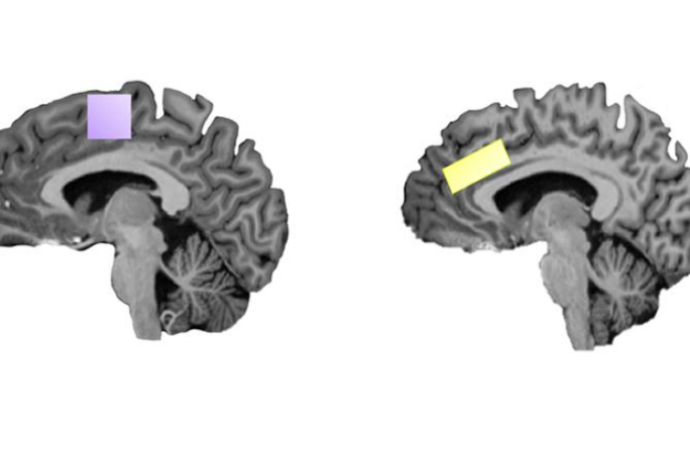Chemical imbalance in the forebrain underpins compulsive behaviour and OCD
Dr Paula Banca, Hughes Hall Senior Member, and fellow neuroscientists reveal that the findings are a “major piece of the puzzle” in understanding OCD, and could open up new lines of treatment.
Scientists at the University of Cambridge have used powerful new brain imaging techniques to reveal a neurochemical imbalance within regions of the frontal lobes in patients with obsessive-compulsive disorder (OCD). The study shows that the balance between glutamate and GABA – two major neurotransmitter chemicals – is “disrupted” in OCD patients in two frontal regions of the brain.
Researchers also found that people who do not have OCD but are prone to habitual and compulsive behaviour have increased glutamate levels in one of these brain regions.
Neuroscientists behind the study say the findings will open up new avenues for treating OCD, a psychiatric disorder that affects up to 3% of Western populations and can be deeply disabling. Using magnetic resonance spectroscopy, the researchers measured levels of glutamate and GABA in regions of the cerebral cortex, the outermost and most highly developed part of the human brain.
Dr Banca, second author of the work, talked about the findings, published in Nature Communications this week, and the implications:
“I’m excited to share our latest discovery revealing that people with OCD have an imbalance in the levels of the glutamate and GABA (the main excitatory and inhibitory neurotransmitters) in the frontal regions of the brain relevant for decision-making and the control of automatic habits. This breakthrough presents new opportunities for possible treatments in OCD aiming at re-adjusting this imbalance.”

Current treatments for OCD are limited. While people with milder symptoms can benefit from some anti-depressants, for those with severe symptoms there are few options – often extreme – such as deep-brain stimulation and even neurosurgery to remove the anterior cingulate cortex entirely.
Glutamate is an “excitatory” neurochemical: it facilitates electrical impulses that fire neurons to send information around brain networks. GABA is an “inhibitory” neurotransmitter that works in opposition to glutamate by dampening neural excitability, creating a balance. OCD sufferers had higher levels of glutamate and lower levels of GABA in the anterior cingulate cortex, compared to people without OCD.
Additionally, the severity of OCD symptoms, along with the inclination towards habitual and compulsive behaviour, was related to higher glutamate levels in the supplementary motor region. This was found to be the case in OCD patients as well as in healthy participants with milder compulsive tendencies. The anterior cingulate cortex and the supplementary motor area are both centrally involved in deciding the balance between our conscious goals and more automatic habits. The research suggests that “compulsions arise from a dysregulated brain system for controlling habits” say scientists.
“Understanding obsessive-compulsive disorder is a central question for psychiatry. We have now shown definitive changes in these key neurotransmitters in OCD sufferers,” said senior author Prof Trevor Robbins from Cambridge’s Department of Psychology. “Excess glutamate and reduced GABA is disrupting the neural circuitry in key regions of the OCD brain. Our findings are a major piece of the puzzle for understanding the mechanisms behind OCD. The results suggest new strategies for medication in OCD based on available drugs that regulate glutamate. In particular, drugs that inhibit presynaptic glutamate receptors,” said Robbins. A presynaptic receptor is the part of a nerve cell that controls release of neurotransmitter chemicals.
Severe OCD is a mental health disorder that causes untold misery for some sufferers. It can lead to loss of work and relationships, and social isolation. “Symptoms of intrusive thoughts and repetitive rituals can confine patients to their homes for months on end,” said Robbins. In extreme cases, the lack of control and sense of hopelessness caused by OCD can result in thoughts of suicide.
The research is funded by the Wellcome Trust.
With thanks to the University of Cambridge for permission to details from, which can be read in full here: www.cam.ac.uk/research/news/chemical-imbalance-in-the-forebrain-underpins-compulsive-behaviour-and-ocd-study-finds
To contact Dr Paula Banca, email: pmdob2@cam.ac.uk.
28.6.23





